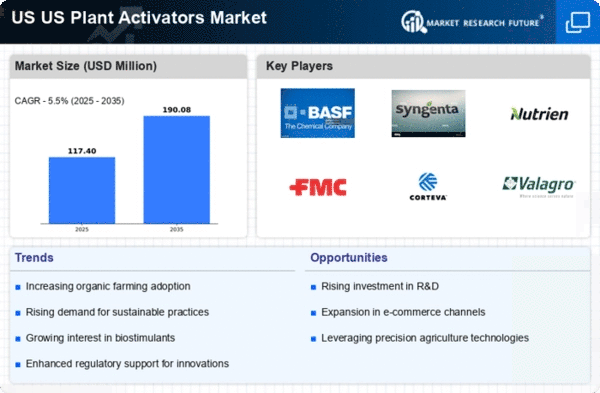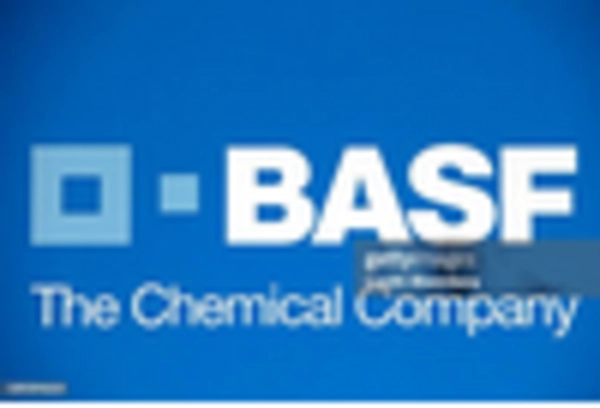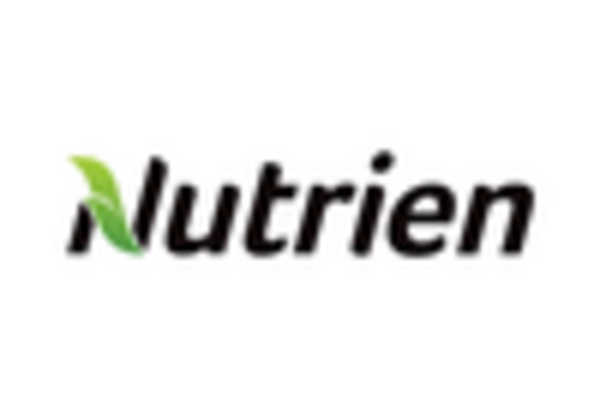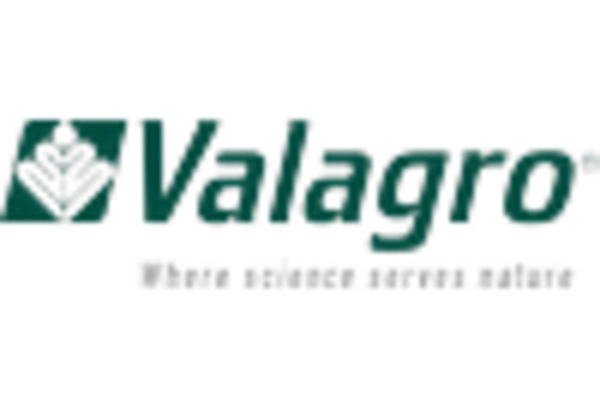Rising Global Food Demand
The US Plant Activators Market is also influenced by the rising global food demand, driven by population growth and changing dietary preferences. As the US strives to meet the food needs of its growing population, the adoption of plant activators becomes increasingly critical. These products can help improve crop yields and quality, thereby contributing to food security. According to projections, the global population is expected to reach nearly 10 billion by 2050, necessitating innovative agricultural solutions. The US Plant Activators Market is poised to play a vital role in addressing these challenges, as farmers seek effective ways to enhance productivity and sustainability.
Government Incentives and Support
The US Plant Activators Market benefits from various government incentives aimed at promoting sustainable agricultural practices. Federal programs, such as the Environmental Quality Incentives Program (EQIP), provide financial assistance to farmers who implement environmentally friendly practices, including the use of plant activators. These incentives encourage farmers to transition from conventional methods to more sustainable approaches, thereby increasing the market for plant activators. Furthermore, state-level initiatives often complement federal efforts, creating a favorable regulatory environment that supports the growth of the plant activators market.
Advancements in Agricultural Technology
Technological advancements are playing a pivotal role in shaping the US Plant Activators Market. Innovations such as precision agriculture, data analytics, and biotechnology are enabling farmers to optimize the use of plant activators effectively. These technologies facilitate targeted application, ensuring that activators are used efficiently to maximize crop performance. For instance, the integration of drones and satellite imagery allows for real-time monitoring of crop health, which can inform the application of plant activators. As a result, the market is likely to witness increased adoption of these products, driven by the need for enhanced productivity and resource management.
Growing Awareness of Plant Health Benefits
There is a growing awareness among farmers and agricultural stakeholders regarding the health benefits associated with plant activators. The US Plant Activators Market is witnessing an increase in educational programs and workshops that highlight the advantages of using these products. Research indicates that plant activators can enhance nutrient uptake, improve stress tolerance, and boost overall plant health. As farmers become more informed about these benefits, the demand for plant activators is expected to rise. This trend is further supported by the increasing focus on food quality and safety, which aligns with the use of natural and effective agricultural solutions.
Increasing Demand for Sustainable Agriculture
The US Plant Activators Market is experiencing a notable surge in demand for sustainable agricultural practices. As consumers become more environmentally conscious, farmers are increasingly adopting plant activators to enhance crop resilience and yield without relying on synthetic chemicals. This shift is supported by various state and federal initiatives promoting organic farming and sustainable practices. According to recent data, the organic farming sector in the US has grown significantly, with sales reaching over 50 billion dollars in 2022. This trend indicates a robust market potential for plant activators, as they align with the principles of sustainability and environmental stewardship.

















